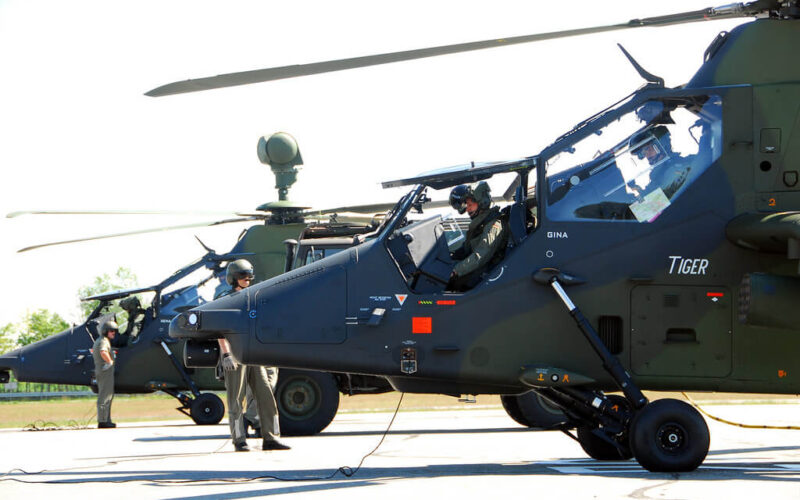The Bundeswehr has grounded its fleet of Tiger attack helicopters following a safety warning issued by Airbus Helicopters.
The German Federal Armed Forces have suspended flight and training operations of the Tiger combat helicopter, Der Spiegel revealed. The manufacturer, Airbus Helicopters, warned that a titanium bolt of the Main Rotor Control may show unusual weakness and break during flights. Such failure could potentially lead to a crash. Thus, the Bundeswehr has decided to ground the fleet and inspect each aircraft.
The same problem was also identified on the German NH90 and EC135 helicopters, but the material is not used in critical areas, meaning they will continue to operate for now.
The Bundeswehr has been suffering from the lack of availability of its aircraft, and the Tiger is no exception. In its latest ‘Report on the material situation of the main armament systems of the Bundeswehr’,’ the Defense Ministry revealed that on average only 11.6 out of its 53 Tiger helicopters were operational throughout 2018.
On July 16, 2017, a German Tiger attack helicopter crashed near Gao as it was participating in the United Nations Multidimensional Integrated Stabilization Mission in Mali (MINUSMA). The investigation of the Bundeswehr published in late 2018 concluded that the accident was due to a mistake made by three Airbus Helicopters technicians during a maintenance operation on the main rotor. The manufacturer agreed with the conclusions of the investigation and said that precautionary measures were implemented to prevent any reoccurrence.
Germany is not the only country critical of the aircraft. In July 2019, the Capability Acquisition and Sustainment Group (CASG) of the Australian defense ministry launched a request for information (RFI) to acquire a total of 29 attack helicopters to replace its 22 Tigers. In a jab to the Airbus aircraft, the RFI asked for the replacement to be “proven and mature, off-the-shelf”. Several Australian institutions had criticized the aircraft in the past for its low availability and high maintenance cost.

